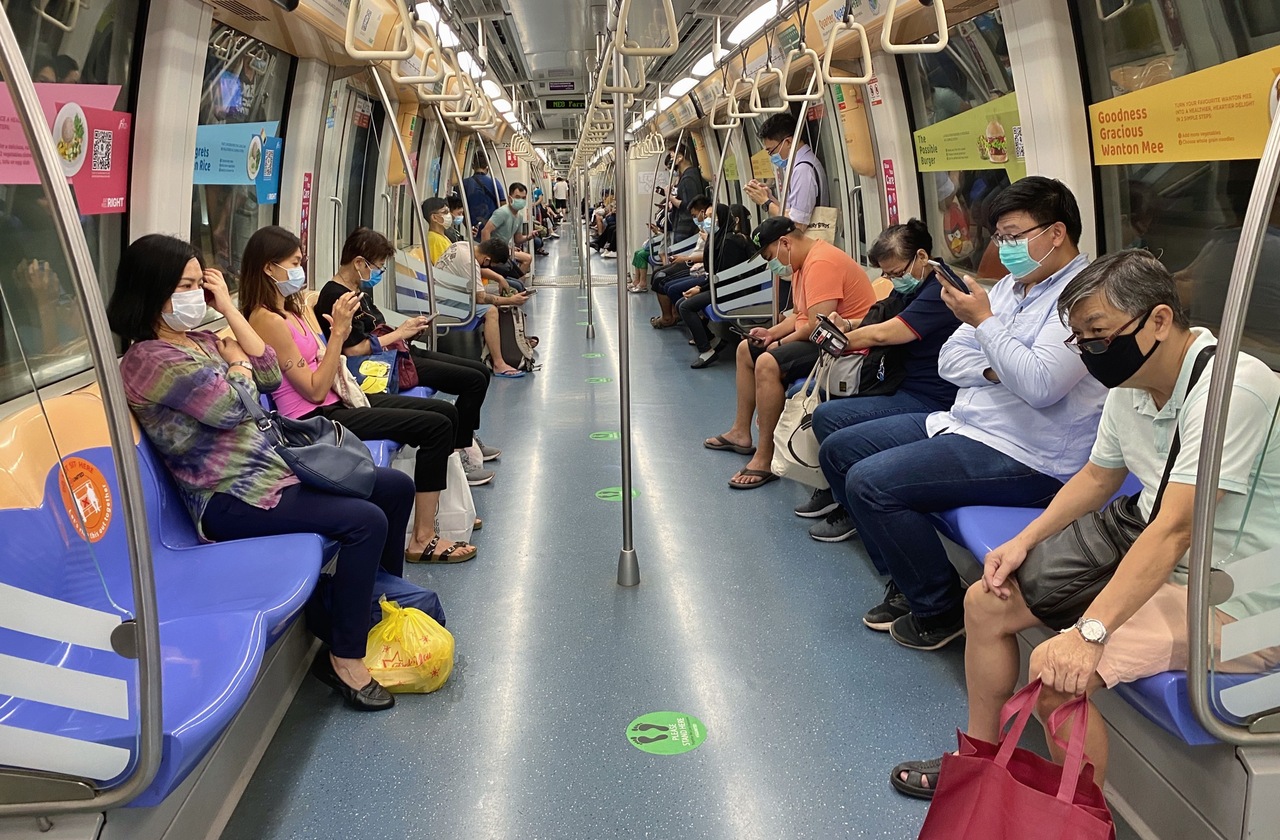SBS Transit gets estimated $30m rail reliability incentive
Sign up now: Get ST's newsletters delivered to your inbox

SBS Transit, the operator of the North-East and Downtown lines, had the highest reliability numbers in 2020.
PHOTO: ST FILE
SINGAPORE - Transport operator SBS Transit (SBST) has been awarded an estimated $30 million for rail reliability last year - the first award of its kind.
In its latest annual report, the ComfortDelGro subsidiary mentioned that it had received a "rail reliability incentive".
In his chairman's address, Mr Lim Jit Poh said SBST's public transport revenue had decreased by 13.6 per cent to $1.19 billion, but this was "offset by the Rail Reliability Incentive".
SBST would not reveal how much the little-known incentive amounted to, but in the annual report's income statement, the company said performance incentives from the Land Transport Authority for bus and rail accounted for about 5 per cent of its total revenue, up from 2 per cent in 2019.
Based on its total revenue of $1.23 billion for last year, the incentives amounted to around $60 million. Assuming an equal split between buses and rail, SBST's maiden rail incentive would be some $30 million.
The operator of the North East and Downtown lines had the highest reliability numbers last year, posting more than two million train-km between delays of more than five minutes, according to LTA statistics.
Rival SMRT, which underwent a multimillion-dollar asset renewal programme for its North-South and East-West lines, clocked between one million and 1.3 million train-km between delays. Its Circle Line did better, with 1.7 million train-km.
Unlisted SMRT, however, would not say if it had received any incentives for rail reliability.
SBST also clinched the Safe Rail Line of the Year (Excellence) award ,which it has now won twice in the award's three-year history.
Singapore University of Social Sciences transport economist Walter Theseira said the use of performance incentives in public transport has been shown to deliver better service and reliability.
"The question is whether the incentive amount and targets are appropriately set to provide value for money," he said. "Incentives work best when the targeted outcome can be directly influenced by the skill and care of the transport operator. Otherwise, they may be a waste of public funds."
Associate Professor Theseira said such concerns can be addressed by competitive contracting, "as competition helps to discover the right level of incentive targets, or reduces the price for services if incentives are too generous or easily attained".
He noted that the rail sector in Singapore is not subject to the same frequency of competitive contracting as bus services are. "Thus, care has to be taken in benchmarking the incentive framework so that it actually represents a high performance target that only a diligent operator can achieve," he said, adding that the existing level of reliability, age of assets, and design and engineering issues should be considered too.


